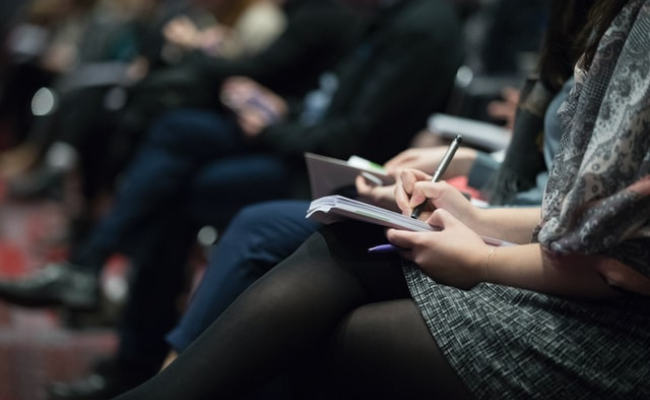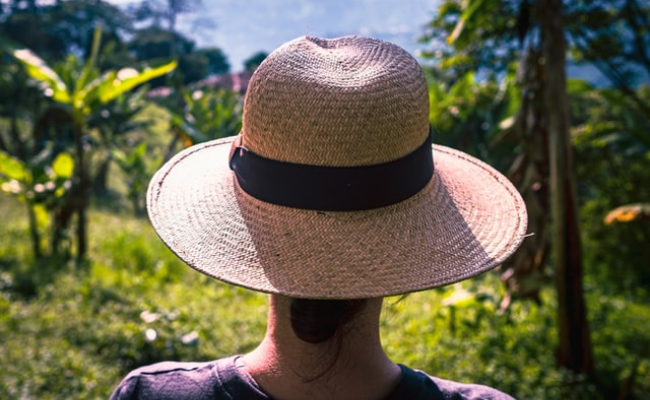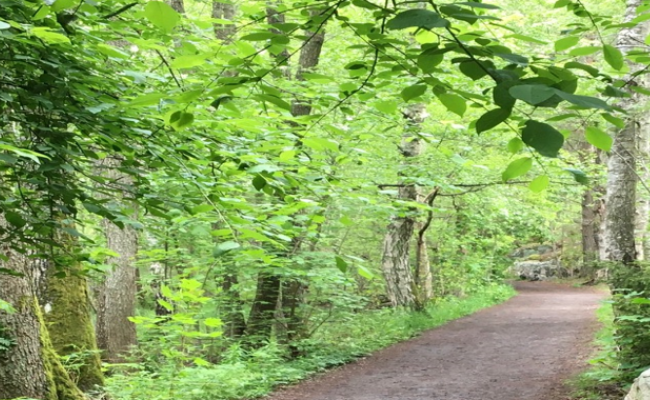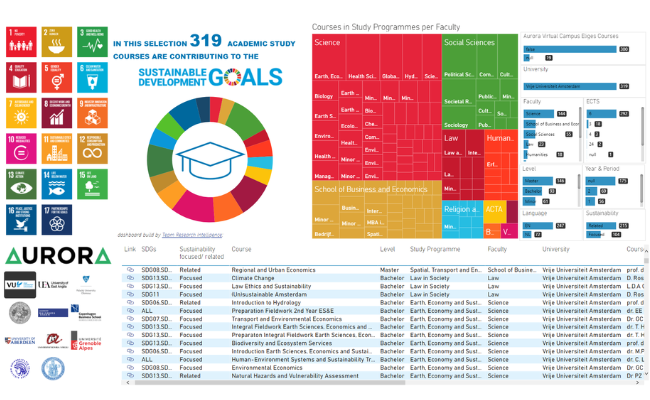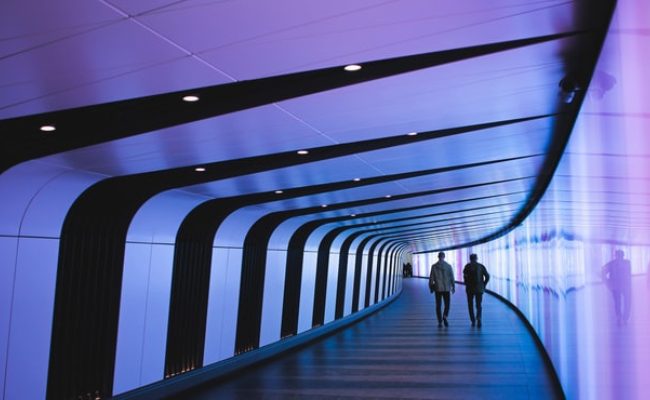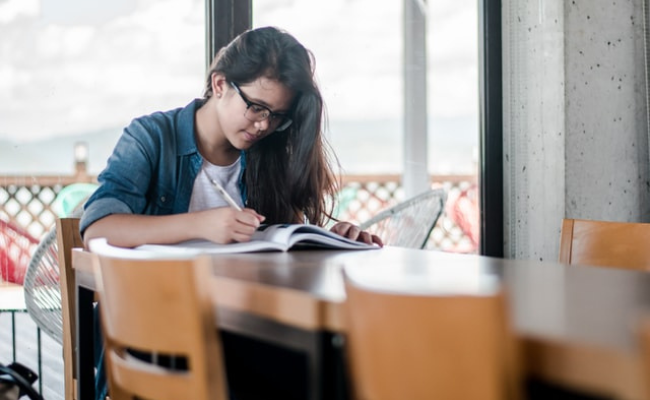Embedding Climate Change Education within HEIs
Session 6. Embedding Climate Change Education within HEIs
Friday, June 10th, 15:00 – 16:30 British Summer Time (UTC+1)
Description
Over the last decade Climate Change Education (CCE) at universities has increased (Filho et al. 2021; Thew et al., (2021). There is a range of published examples/case studies illustrating how CCE is embedded within certain courses/disciplines (Madden et al., 2018; Molthan-Hill et al., 2019; Kinakh, 2021). There are still challenges in addressing climate change within the teaching practices at universities.
This session seeks to further the debate on:
- What are the attitudes of teaching staff to CEE, their knowledge of climate change, and inclusion of ‘climate change’ topics in their teaching?
- What strategies are more effective in educating modern-day students about climate change (e.g., how educators should teach and how undergraduate/postgraduate students might be engaged to learn about climate change and actions that can be taken to mitigate and adapt to climate change)?
- To assist in embedding CEE in curricula, can the existing strategies, initiatives, case studies, etc. be replicated in universities across the globe, and can challenges to implement CCE be addressed/resolved promptly?
Professor Petra Molthan-Hill PhD, MBA, MDiv, PFHEA is Co-Chair UN PRME Working Group on Climate Change & the Environment and a Professor of Sustainable Management and Education for Sustainable Development at Nottingham Business School, Nottingham Trent University. Professor Dave Reay FRSGS is Executive Director of Edinburgh Climate Change Institute , Policy Director of ClimateXChange and Chair in Carbon Management & Education, School of GeoSciences, The University of Edinburgh.
Session organiser
- Dr. Vitalia Kinakh, The University of Manchester
Presenters
- Professor Petra Molthan-Hill, Nottingham Trent University
- Professor Dave Reay, The University of Edinburgh
Slides
Vitalia Kinakh
Petra Molthan-Hill
Relevant Links
Mainstreaming Climate Change Education in UK Higher Education Institutions
EduCCate Global
QAA Education for Sustainable Development
Carbon Literacy Action Day
En-ROADS Simulator
Climate Literacy & Action Training CLT-ECOS
Session recording
Other sessions
Radical Reforms for the Campus of the Future
Visualizing Societal Impact: Research and Education Dashboards of the Sustainable Development Goals
How to Report the Transformation in Higher Education for Global Sustainability
Accelerating Sustainability in Higher Education: Perspectives and Experiences from Latin American Universities
Session 4. Accelerating Sustainability in Higher Education: Perspectives and Experiences from Latin American Universities
Wednesday, June 8th, 11:00 – 13:00 Central Daylight Time (UTC-5)
Description
The ISCN-LATAM Steering Committee members will outline the unique challenges and opportunities universities are facing in advancing sustainability and share work to date on the development of the ISCN-LATAM Chapter. Each member will showcase sustainability initiatives at their respective universities and discuss opportunities for further collaboration. The session will help to generate ideas for the ISCN-LATAM Chapter work for the year ahead.
Session organisers
- ISCN-Latin American Chapter Steering Committee
Presenters
- Denise Crocce, Associate Professor, Universidade de São Paulo, Brasil
- Emilio Latorre, Director Oficina de Campus Sostenible, Fundación Universitaria Católica Lumen Gentium, Cali, Colombia
- Héctor Miranda, Gerente General de Regenerativa, Perú
- José Kanematsu Hazama, Dirección de Infraestructura, Pontificia Universidad Católica de Perú
- Leticia Merino, Coordinadora de la Coordinación para la Sustentabilidad e Investigadora del Instituto de Investigaciones Sociales, Universidad Nacional Autónoma de México
- Melissa Brown Goodall, Senior Director, Environmental Innovation Initiative, University of Pennsylvania
- Simone Buratti, ISCN-LATAM Chapter Coordinator
Slides
01-Latin America Challenges and Opportunities
02-A Network Under Construction
03-Opportunities for ISCN-LATAM
04-Denise Crocce ISCN 2022 USP
05-Jose Kanematsu PUCP
06-Integrated Plan for Sustainability UNAM
07-Creating Local Networks of Sustainability RUCAS Cali Colombia
Relevant Links
Primer Campus Universitario Sostenible del Perú Video
Session recording
Other sessions
Radical Reforms for the Campus of the Future
Visualizing Societal Impact: Research and Education Dashboards of the Sustainable Development Goals
How to Report the Transformation in Higher Education for Global Sustainability
Embedding Climate Change Education within HEIs
How to Report the Transformation in Higher Education for Global Sustainability
Session 5. How to Report the Transformation in Higher Education for Global Sustainability
Thursday, June 9th, 15:00 – 17:00 Central European Time (UTC+2)
Description
The pressure on communicating both internally and externally about universities’ contributions to sustainable development has increased. This session will include four universities presenting how they have tackled sustainability reporting challenges and another presentation describing the survey on sustainability reporting that the Working Group will conduct during 2022.
This will be followed by interactive breakout rooms for more detailed discussions on specific issues related to sustainability reporting. The aim is to create smaller benchmarking groups on specific topics where the participants can continue sharing experiences during the year.
Session organisers
- Kristina von Oelreich, Sustainability Manager at KTH Royal Institute of Technology
- ISCN Sustainable Reporting Workgroup
Presenters
- Ana Carla Madeira, Head of the Sustainability Committee, University of Porto
- Andreas Dionyssiou, Coordinator, Environmental Policy Office, Cyprus University of Technology
- Anna Berglund, Sustainability Coordinator at KTH Royal Institute of Technology
- Omar Kassab, ETH Sustainability, Office of the President, ETH Zürich
- Sonja Moghaddari, Vice Presidency for Responsible Transformation EPFL
- Jacopo Grazioli, Sustainability project manager/education and Atmospheric scientist, EPFL
- Siroune Marie-Noëlle Der Sarkissian, Senior Project Leader – Sustainability / Supply, EPFL
- Paul Cross, Expert, Institutional Research, ETH Zürich
- Tobias Michl, Sustainability manager at the Technical University of Munich
Slides
Kristina Von Oelreich
Anna Berglund
Andreas Dionyssiou
Ana Carla Madeira
Omar Kassab
Break-out room topics
- Reporting on sustainability education
- Reporting on waste, energy, water consumption
- The reporting process
- Reporting on the universities climate footprint/reducing carbon emissions
Miro boards from breakout rooms
Session recording
Other sessions
Radical Reforms for the Campus of the Future
Visualizing Societal Impact: Research and Education Dashboards of the Sustainable Development Goals
Embedding Climate Change Education within HEIs
Visualizing Societal Impact: Research and Education Dashboards of the Sustainable Development Goals
Session 3. Visualizing Societal Impact: Research and Education Dashboards of the Sustainable Development Goals
Wednesday, June 8th, 15:00 – 16:00 Central European Time (UTC+2)
How can you make the impact of the university on the SDGs visible? In collaboration with the Aurora Alliance, VU has developed an SDG research dashboard that demonstrates the societal relevance and societal impact of research. This dashboard shows the research contributions to these societal challenges, and how policymakers have used the research available to tackle these challenges.
Additionally, VU has also developed an SDG inventory of VU courses. There, students can see what SDG courses the university has to offer. During the session, we will present how the development of the dashboard was approached and what the next steps are.
Session organisers
- Ivar Maas, Vrije Universiteit Amsterdam
- Neele van den Bongardt, Vrije Universiteit Amsterdam
Slides
Neele van den Bongardt & Ivar Maas
Relevant Links
RESEARCH
SDG Label Suggestion Tool for research
With combined method of Elsevier SDG queries 2021 and Aurora SDG AI, as well as both methods separately
Survey data validation process
You can download the survey data at this link
Information about improvement process
Go To SDG text analysis dashboard
Aurora Working Group: WP5.1 | Deliverables | SDG Research Dashboard
All data
All data to improve the queries, survey data, text analysis data and queries can be found for free on Zenodo
Evaluation on accuracy of mapping science to the United Nations' Sustainable Development Goals (SDGs) of the Aurora SDG queries
By Schmidt, Felix; Vanderfeesten, Maurice
Whitepaper Societal Relevant Impact : Potential analysis for Aurora-Network university leaders to strengthen collaboration on societal challenges
By Maurice Vanderfeesten; René Otten
EDUCATION
If you would like to stay in touch on this, please send us an email: [email protected]
Session recording
Other sessions
Radical Reforms for the Campus of the Future
How to Report the Transformation in Higher Education for Global Sustainability
Embedding Climate Change Education within HEIs
Radical Reforms for the Campus of the Future
Session 2. Radical Reforms for the Campus of the Future
Wednesday, June 8th, 11:00 – 12:30 Hong Kong Time (UTC+8)
Description
A net-zero campus in 2050 probably does not resemble our campuses of today. In fact, some suggest that even four-year undergraduate degrees may soon be obsolete as the emphasis shifts to life-long learning models and personalized student training. This means that the combination of net-zero pressures and the restructuring of teaching and learning models will fundamentally transform campuses that are ready (and punish those that are not). In this session, we will anticipate radical changes we might see in the coming decades and explore ways to get ahead of the curve for a soft (and sustainable) landing.
Session organiser
- Davis Bookhart, Director, Sustainability/Net-Zero Office, Hong Kong University of Science and Technology
Presenters
- Gray Kochhar-Lindgren, Professor, and Director of the Common Core, University of Hong Kong
- John Alejandro Dunn Insúa, Professor and Deputy Director of the CADI Editorial Project, College of Architecture and Interior Design (CADI), Universidad San Francisco de Quito
- David Galipeau, Founding Partner SDGx.io, Director, SDGx Near Future Lab
Relevant Links
Sustainable Smart Campus as a Living Lab
Sustainability Net-Zero Office
Session recording
Other sessions
Visualizing Societal Impact: Research and Education Dashboards of the Sustainable Development Goals
How to Report the Transformation in Higher Education for Global Sustainability
Embedding Climate Change Education within HEIs
Sustainability in Higher Education: An Agenda for Transformational Change: A Manifesto for Change and ‘Third-way’ People
Session 1. Sustainability in Higher Education: An Agenda for Transformational Change: A Manifesto for Change and ‘Third-way’ People
Tuesday, June 7th, 9:00 – 10:30 Eastern Daylight Time (UTC-4)
Description
Higher education (HE) is essential for the transformative change of sustainable development (SD). Adopted as a driver of change within HE institutions (HEIs) and/or realized beyond their walls, HEIs are on a sustainability journey – some are just setting out, while others are further along – no one institution has yet arrived.
Sustainability-led transformation may take place at the level of the institution, organization, culture, place (anchor), and/or students. Different local and national contexts, institutional archetypes, and academic missions influence the pursuit of SD in and by HEIs. But HEIs must change – what they do, how they do it, and with whom. Relatively incremental and small-scale projects will not deliver on the new ways demanded by the challenges of the Anthropocene – certainly not fast enough. We need to ‘power-up’ to realize fully the transformational potential of HE as a route for SD.
A manifesto for change in HE[1] relies on new leadership and governance models and ‘third-way’ professionals, i.e., those able to traverse academic and professional domains to advance pan-HEI projects. The session will explore a 10-point manifesto for change in the context of articulating definitions of ‘boundary spanning people, able to navigate the inherent tensions of bounded discipline-based scholarly communities, professional domain groupings, and students from all fields to advance sustainability projects that are multi-faceted, unbounded and emergent.
[1] Purcell, W. M. & Haddock-Fraser, J. (2023). Handbook of Sustainability in Higher Education: An Agenda for Transformational Change. Bloomsbury Press.
Session organiser
- Dr. Wendy Purcell, Harvard University
Presenters
- Julie Newman, Director of Sustainability, MIT
- Julio Lumbreras, Professor, Technical University of Madrid (UPM)
- Dave Gorman, Director of Social Responsibility and Sustainability, The University of Edinburgh
- Shana Weber, Director, Office of Sustainability and Lecturer, High Meadows Environmental Institute at Princeton University
Slides
Wendy Purcell
Julie Newman and Shana Weber
Julio Lumbreras
Relevant Links
Handbook on Sustainability in Higher Education: An Agenda for Transformational Change
Session recording
Other sessions
Radical Reforms for the Campus of the Future
Visualizing Societal Impact: Research and Education Dashboards of the Sustainable Development Goals
How to Report the Transformation in Higher Education for Global Sustainability
Embedding Climate Change Education within HEIs
